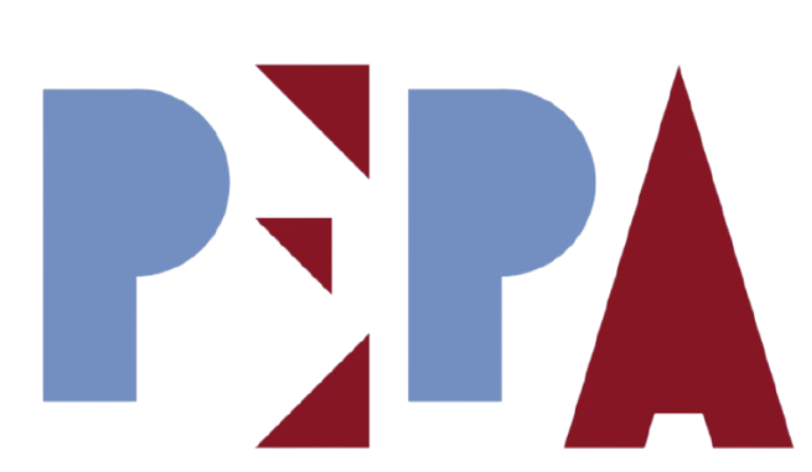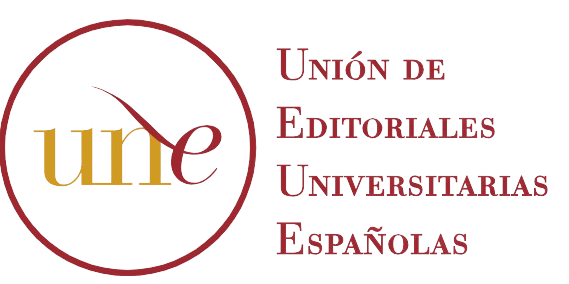Policies and services
Presentation of the guiding principles of the UNE OA Platform.
Documentary compilation of the Policies on which it operates.
REGULATIONS GOVERNING THE PLATFORM:
The legal framework that supports the open access publication of institutional scientific production is found in the following regulations:
National regulations
National Strategy for Open Science (ENCA) 2023-2027
Open science implies an evolution in the way scientific knowledge is produced, financed, communicated, and evaluated. It represents a significant paradigm shift in research activities, dissemination of results, and measurement of research performance that affects life sciences, physics, engineering, and mathematics as well as social sciences and humanities. Open science contributes to increasing transparency and promotes participation, cooperation, accountability, reusability of research work, impact, and reproducibility of results. It also favors the democratization and sustainability of R&D&I systems and promotes the diversification of profiles in research groups and the incorporation of non-academic actors throughout the entire research process cycle, from project design to its evaluation.
The National Strategy for Open Science (ENCA) for the 2023-2027 period includes all commitments related to open science adopted by different public agents of the system, those included in the reform of the Law on Science, Technology and Innovation, approved in September 2022, Law 17/2022; the Spanish Strategy for Science, Technology and Innovation 2021-2023; and the State Plan for Scientific, Technological and Innovation Research 2021-2022; in addition to reviewing the international and national context in terms of open science.
Law 2/2023, of March 22, on the University System (BOE No. 70, 03/23/2023), amended by Law 17/2022, of September 5. (Consolidated text)
Article 12. Promotion of Open Science and Citizen Science.
1. Scientific knowledge shall be considered a common good. Public Administrations and universities shall actively promote and contribute to Open Science through open access to scientific publications, data, codes, and methodologies that guarantee the communication of research, in order to achieve the objectives of responsible research and innovation promoted by the scientific community, as well as the objectives of free circulation of scientific knowledge and technologies promulgated by the European research and technological development policy.
2. Teaching and research staff must deposit a copy of the final version accepted for publication and the data associated with it in institutional or thematic open access repositories, simultaneously with the date of publication.
3. The digital version of academic publications shall be deposited in institutional repositories, without prejudice to other thematic or generalist repositories.
4. The Ministries of Universities and of Science and Innovation and the corresponding bodies of the Autonomous Communities, each within its scope of action, shall promote other initiatives aimed at facilitating free access to data generated by research (open data) and developing open infrastructures and platforms.
5. Data, understood as those primary sources necessary to validate research results, must follow the FAIR principles (Findable, Accessible, Interoperable, and Reusable) and, whenever possible, be disseminated in open access.
6. Universities must promote transparency in subscription agreements with scientific publishers.
7. Libraries and other university units shall facilitate citizen access to informational resources, both digital and non-digital, as well as the necessary training to promote the dissemination of Open Science in the university community and in society as a whole.
8. State and regional quality agencies shall include among their evaluation criteria and requirements the open accessibility of the scientific results of teaching and research staff.
9. Quality agencies shall use institutional repositories as a means of accessing documentation, to ensure the agility of evaluation procedures.
10. Citizen Science shall be promoted as a field for generating shared knowledge between citizens and the university research system. With the aim of promoting scientific, technological, humanistic, artistic, and cultural reflection and its application to social challenges, universities shall favor and promote collaboration with social actors, and with Public Administrations, especially with the Autonomous Communities and Local Administration.
11. The foregoing shall be compatible with the possibility of taking appropriate measures to protect, prior to scientific publication, the rights to the results of research, development, and innovation activities, in accordance with national and European regulations on intellectual and industrial property, plant varieties, or trade secrets.
Law 14/2011, of June 1, on Science, Technology and Innovation (BOE 06/02/2011), amended by Law 17/2022, of September 5. (Consolidated text)
Article 37. Open science.
Amended by Sole Article, Thirty-nine of Law 17/2022, of September 5: BOE No. 214, of 09/06/2022, Ref. BOE-A-2022-14581. Current wording and entry into force from 09/07/2022:
1. Public agents of the Spanish System of Science, Technology and Innovation shall promote the dissemination of the results of scientific, technological and innovation activities, and that research results, including scientific publications, data, codes and methodologies, are available in open access. Free and open access to the results... will be encouraged through the development of institutional or thematic open access repositories, whether proprietary or shared.
2. Research staff from the public sector or whose research activity is mainly financed with public funds and who choose to disseminate their research results in scientific publications, must deposit a copy of the final version accepted for publication and the associated data in institutional or thematic open access repositories, simultaneously with the date of publication.
3. Beneficiaries of research, development or innovation projects mainly financed with public funds must comply at all times with the open access obligations set forth in the bases or grant agreements of the corresponding calls. Beneficiaries of public aid and grants will ensure that they retain the necessary intellectual property rights to comply with open access requirements.
4. Research results available in open access may be used by Public Administrations in their evaluation processes, including the evaluation of research merit.
5. The Ministry of Science and Innovation will facilitate access to open access repositories and their interconnection with similar national and international initiatives, promoting the development of systems that facilitate it, and will promote open science in the Spanish Strategy for Science, Technology and Innovation, recognizing the value of science as a common good and following European recommendations on open science.
In addition to open access, and always with the aim of making science more open, accessible, efficient, transparent and beneficial to society, the Ministries of Science and Innovation and of Universities, each in its field of action, as well as the Autonomous Communities within the framework of their powers, will also promote other initiatives aimed at facilitating free access and management of data generated by research (open data), in accordance with the international FAIR principles (Findable, Accessible, Interoperable and Reusable), developing open infrastructures and platforms, encouraging the publication of scientific results in open access, and the open participation of civil society in scientific processes, as developed in Article 38.
6. The foregoing will be compatible with the possibility of taking appropriate measures to protect, prior to scientific publication, the rights to the results of research, development and innovation activities, in accordance with national and European regulations on intellectual and industrial property, plant varieties or trade secrets.
Royal Decree 99/2011, regulating Official Doctoral Studies (BOE 02/10/2011)
Article 14. Evaluation and defense of the doctoral thesis.
5. Once the doctoral thesis is approved, the university will be responsible for its archiving in an open electronic format in an institutional repository and will send, in electronic format, a copy of it, as well as any complementary information that may be necessary, to the Ministry of Education for the appropriate purposes.
6. In exceptional circumstances determined by the academic committee of the program, such as, among others, the participation of companies in the program or School, the existence of confidentiality agreements with companies or the possibility of generating patents on the content of the thesis, universities will enable procedures to carry out sections 4 and 5 above that ensure the non-publicity of these aspects.
Own regulations of the UNE OA Platform regarding the deposit of publications by the UNE Publishing Services.
POLICIES:
- Content and collections policy (link to document)
- Metadata policy (link to document)
- Data policy (link to document)
- Deposit policy
- Policy on retention, editing, replacement and deletion of records (link to document)
- Preservation and formats policy (link to document)
- Privacy policy (link to document)
DEPOSIT DOCUMENTS:
The procedure for depositing documents by the Publishing Services associated with UNE in the UNE OA Platform is as follows:
Specification of the procedure to be carried out by the partners when the repository is already up and running.
It will depend on the tools they work with in their editorial management workflows (OMP/OJS).
It will be necessary to see how the document files are sent (which will always be the publisher's version). In the deposit policy the conditions for archiving documents are established.
INFORMATION ABOUT THE REPOSITORY AS AN OAI-PMH DATA PROVIDER
- OAI-PMH Repository Name: Plataforma UNE OA
- Contact E-Mail: digital@une.es
- Repository URL: plataforma.une.oa.es
- Repository Identifier as Data Provider (OAI identifier namespace): https://plataforma.une.oa.es/oai2d?verb=Identify
- Protocol Version.
- Last registration date.
- Date granularity: YYYY-MM-DD hh:mm:ss
- Deletion mode: transitoria


